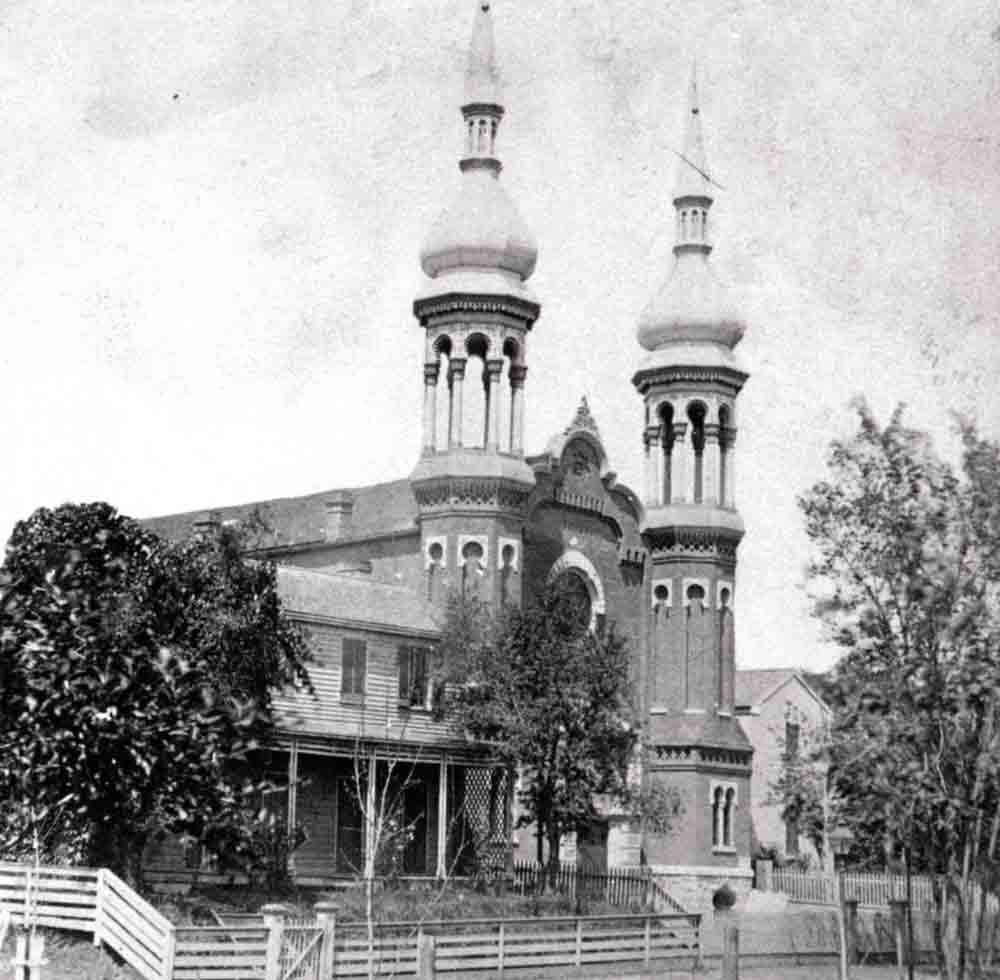A rich and safe history: The Jewish community in Quincy

Quincy has a rich and diverse religious history.
During its first few decades, Quincy was largely Protestant, with Baptists and Congregationalists making up a majority of the population. The Mormon Church made its presence felt in Quincy when in the 1840s, Mormons stayed in Quincy when they were fleeing religious persecution in Missouri. Beginning in the middle of the 1840s, many Irish and German Catholics settled in Quincy, and they were followed by a significant number of German Lutherans. By the end of the 19th century, Quincy had over 80 churches serving its population. The city also had a synagogue, a testament to the Gem City's religious pluralism and toleration.
Religious divisions often flared up in America during the 19th century but Quincy has always prided itself on tolerance. Quincy was a haven for all religious faiths. Although anti-Semitism has never been as strong in the United States as it has been in Europe, Jews in America have suffered from discrimination. However, Quincy has been a welcoming place, and there is rich history in Quincy for the city's Jewish population.
The city's first Jewish resident was Abraham Jonas. A native of England, Jonas emigrated to the United States in the 1820s. After spending time in Kentucky, Jonas decided to move to Quincy in 1836. He worked for a time at an iron and carriage business with his brothers before beginning the study of law. Jonas prospered and was so popular with local officials that he was appointed postmaster of Quincy. A member of the Whig Party, Jonas ran for the Illinois State House in 1842. During his time in politics, he became good friends with Abraham Lincoln; in fact, Lincoln wrote to Jonas once telling him "you are one of my most valued friends."
Jonas played an important part in Lincoln's rise to power. In 1858, Jonas helped arrange the Lincoln-Douglas debates that would take place in Quincy. Jonas also supported Lincoln's candidacy for the presidency in 1860, and alerted Lincoln to a problem that potentially could cost Lincoln the election. Jonas wrote him that a story was making the rounds in Quincy that while visiting the city in 1854, Lincoln had attended a meeting of the "Know-Nothing" party, an accusation which Lincoln strenuously denied. Jonas vouched for Lincoln, stating that he was not at any such event, and Jonas' word helped put the matter to rest.
Jonas was one of the first to push the idea that Lincoln should run for president. At a meeting of Quincy Republicans in 1858, Jonas' law partner Henry Ashbury suggested Lincoln as the Republican nominee in 1860. In attendance was Horace Greely, the influential editor of The New York Tribune. Greely was in Quincy to deliver a talk and Jonas hosted him during his visit. At the meeting, when Ashbury raised Lincoln's name, the room remained quiet for a bit until Jonas spoke up and seconded the idea. It was the first time that Greely had heard the notion of Lincoln for president, and that meeting played a significant role in helping Lincoln take the nomination in 1860. Jonas campaigned hard for Lincoln in 1860, and a month after the election, Jonas wrote Lincoln in December 1860, warning him of potential threats to his life. Jonas had done much for Lincoln throughout the years, and a grateful Lincoln reappointed him postmaster of Quincy in 1861. Ironically, given Jonas' dedication to the Union, three of his four sons fought for the Confederacy during the Civil War. Just three years later, when his friend lay dying, Lincoln ordered that his son Charles, a prisoner of war in a Union camp, be released so that he might be by his father's side at the end. Further, after Jonas passed away, Lincoln named his widow, Louisa, to the postmaster office.
Abraham was not the only Jonas in Quincy. After arriving, he was joined by his two brothers Samuel and Edward, who came in the early 1840s. And they were not alone, as over the next decade, the city's Jewish population grew steadily. In 1856, Rabbi Isaac Mayer Wise stopped in Quincy and noted that "there are about 40 souls of the Jewish persuasion hailing from Germany, Poland and England. They do a flourishing business." By that time, there were enough members in the community to start a congregation. B'Nai Abraham opened in 1852. The congregation was orthodox, and followed traditional Jewish dietary laws. Although there was a congregation, there was no permanent building. Eventually, enough money was raised to build a synagogue, located at Jefferson Square. Because of disagreements within the congregation, a new synagogue was established, this one B'Nai Shalom ( "Sons of Peace"). After renting space from an old Baptist Church, a new building went up on Ninth and Spring. It was completed and dedicated in 1870. A year earlier, fire had destroyed B'Nai Abraham. The rift between the two congregations came to happy conclusion, as the two merged.
Located at 427 N. Ninth, B'Nai Shalom has stood at the same spot for over a century and is Illinois's oldest temple that is still being used today. The synagogue is at present home to about 65 members, down from its peak over a century ago when there were close to 100 active members. Although never a large percentage of Quincy's population, Jews in Quincy have played a vital and integral role in the city's development and history. The synagogue is part of Quincy's rich cultural and religious history and a demonstration of the commitment to diversity and acceptance that has always been part of Quincy's history.
Justin P. Coffey is associate professor of history at Quincy University , where he specializes in recent American history and is the author of numerous articles. He also serves as president of the Historical Society of Quincy and Adams County.






